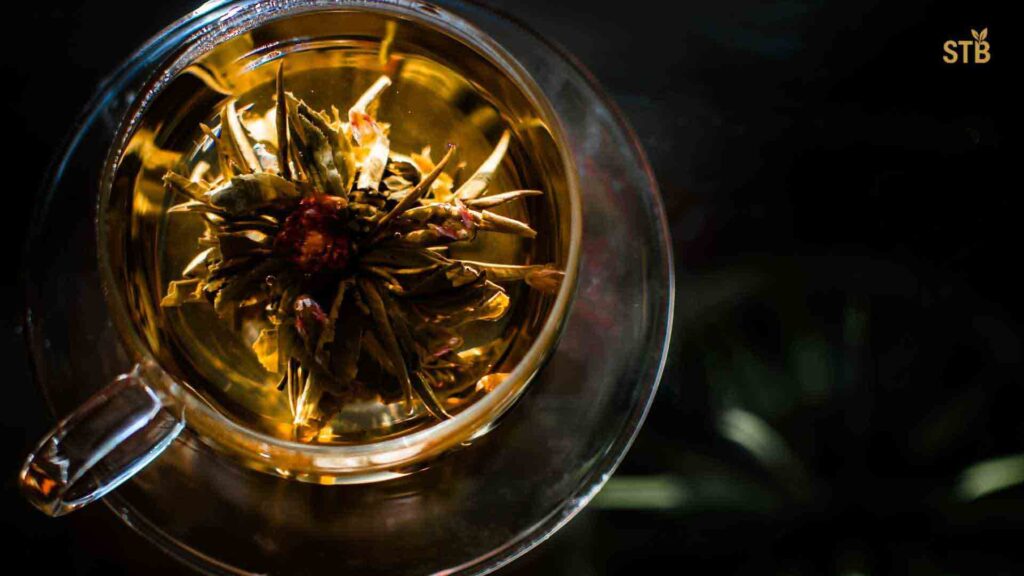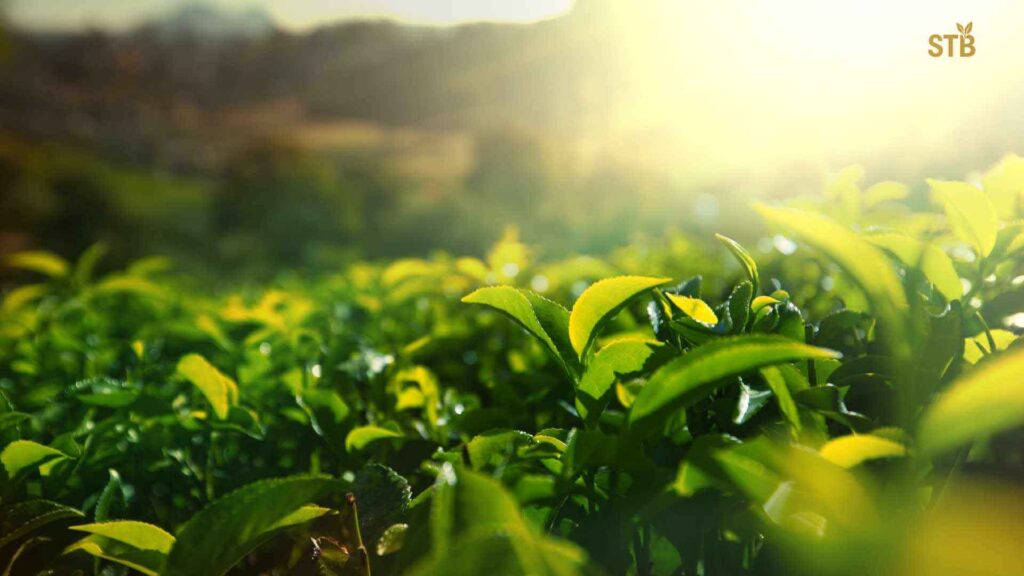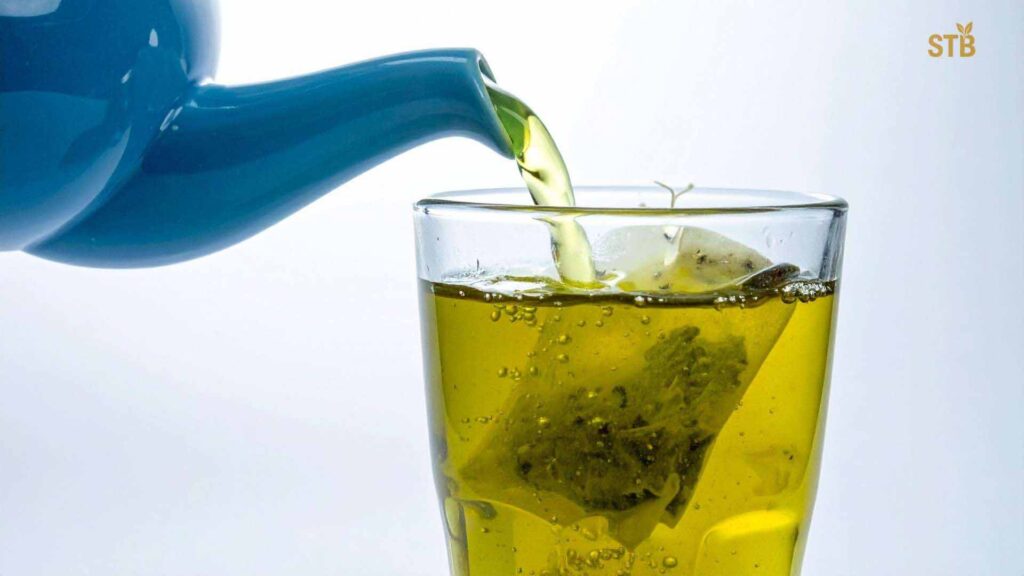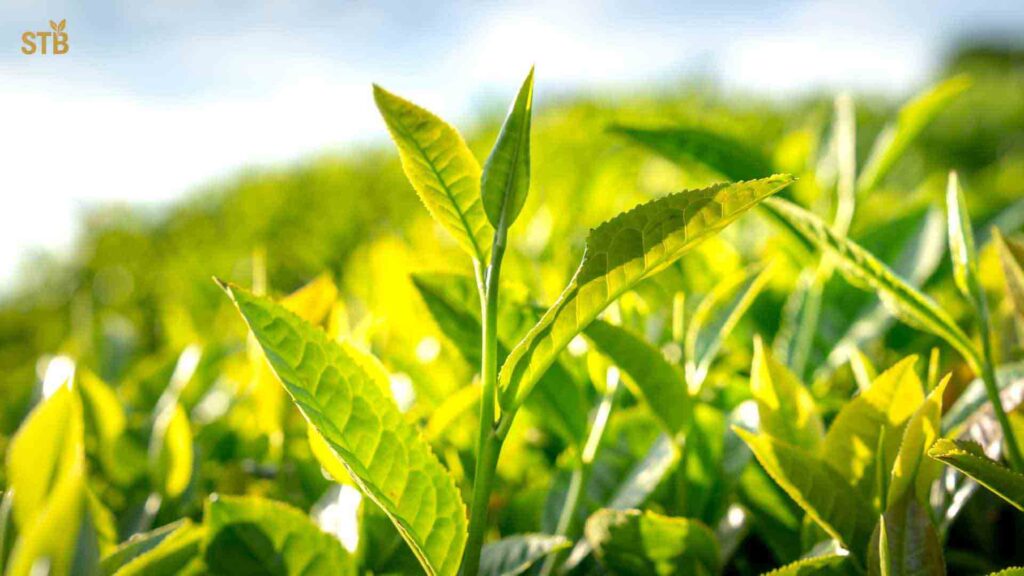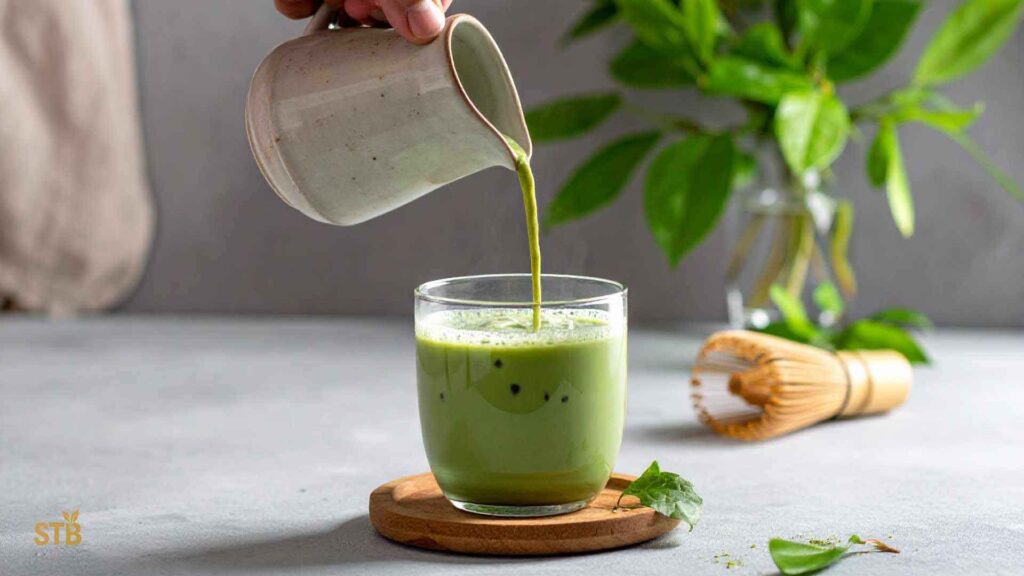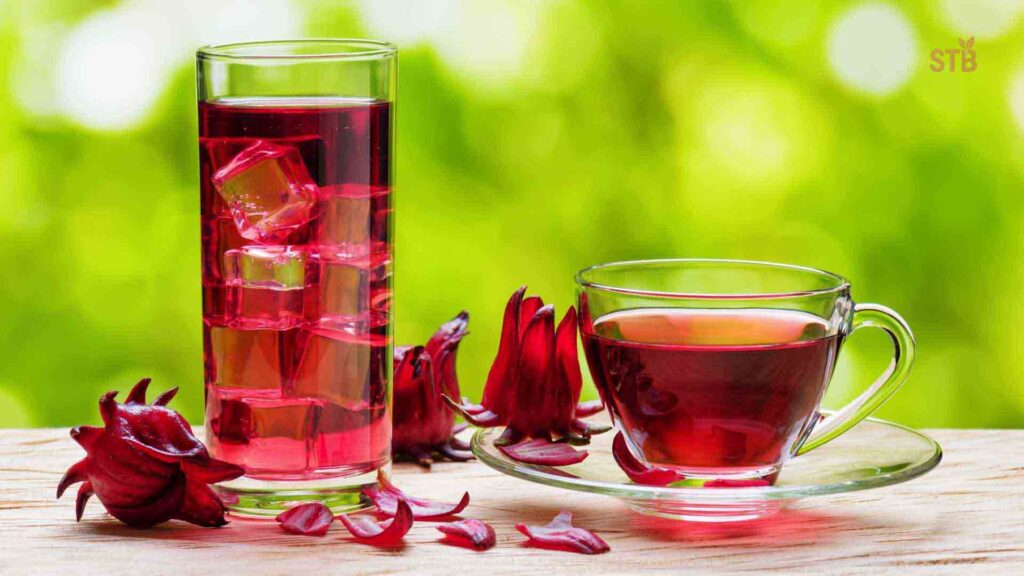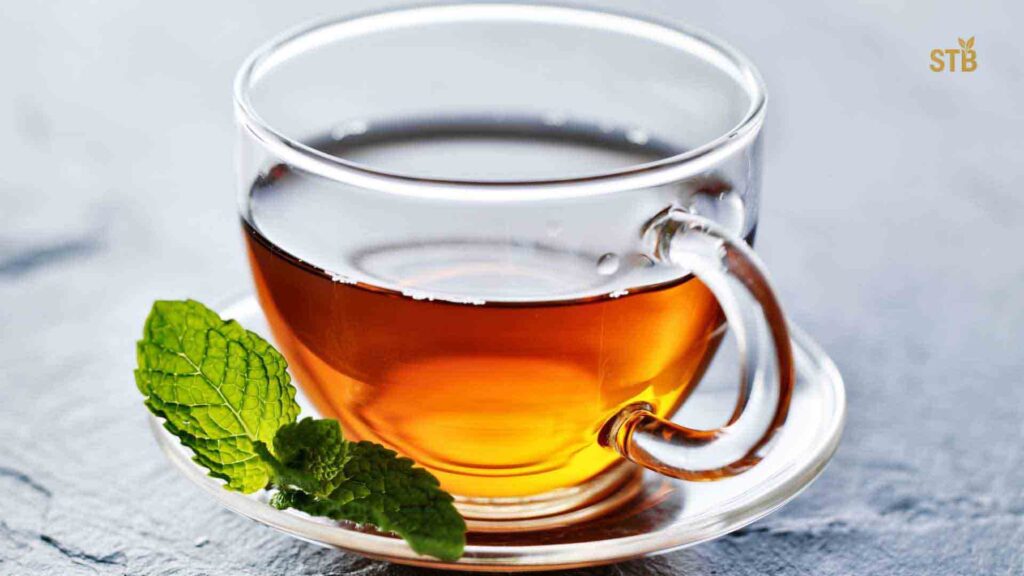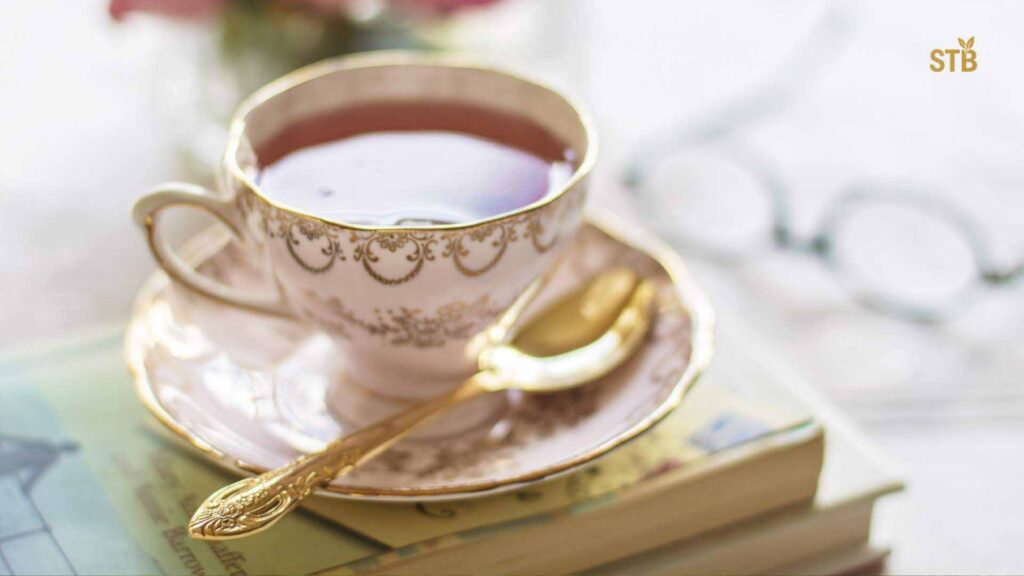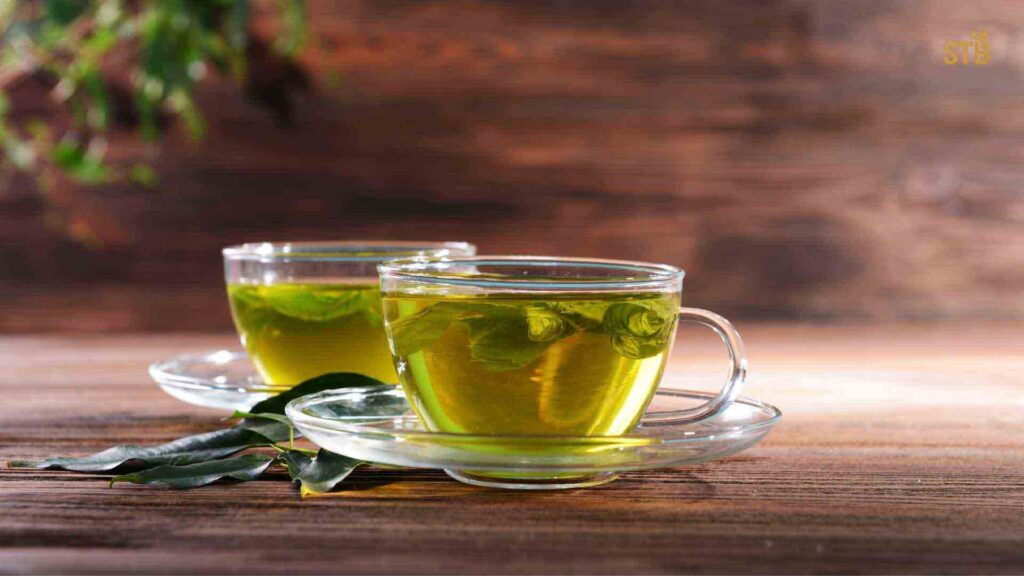Herbal teas (also called tisanes) are more than a soothing beverage – they’re a natural wellness ritual. Unlike true teas made from Camellia sinensis, herbal blends are caffeine-free infusions of herbs, spices, flowers and fruits. Cultures worldwide have used herbal teas for centuries as home remedies – from chamomile before bed to ginger for upset stomach. As Harvard Health notes, many herbal teas offer “health-promoting properties and have been used as natural remedies for centuries”.
The world of tea extends far beyond the traditional black and green varieties, encompassing a wide range of herbal and wellness blends tailored to specific health needs. These infusions, which can include spearmint, rosella, chamomile, or ginger, are valued for their specific functional properties and naturally caffeine-free nature. For instance, a blend of green tea with ginger and lemon combines the health benefits of EGCG with ginger’s anti-inflammatory properties and the immune-boosting effects of lemon.
These teas cater to a growing health-conscious consumer base, positioning tea as a part of a broader wellness lifestyle rather than just a simple beverage. Whether you’re seeking a digestive aid, a sleep-inducing brew, or an immune system boost, there is an herbal tea designed for the purpose. This trend highlights a shift in consumer demand towards specialty teas and custom blends that offer targeted benefits.
In this comprehensive guide, we’ll explore the best herbal teas for health, their benefits, and how to brew and enjoy wellness blends.
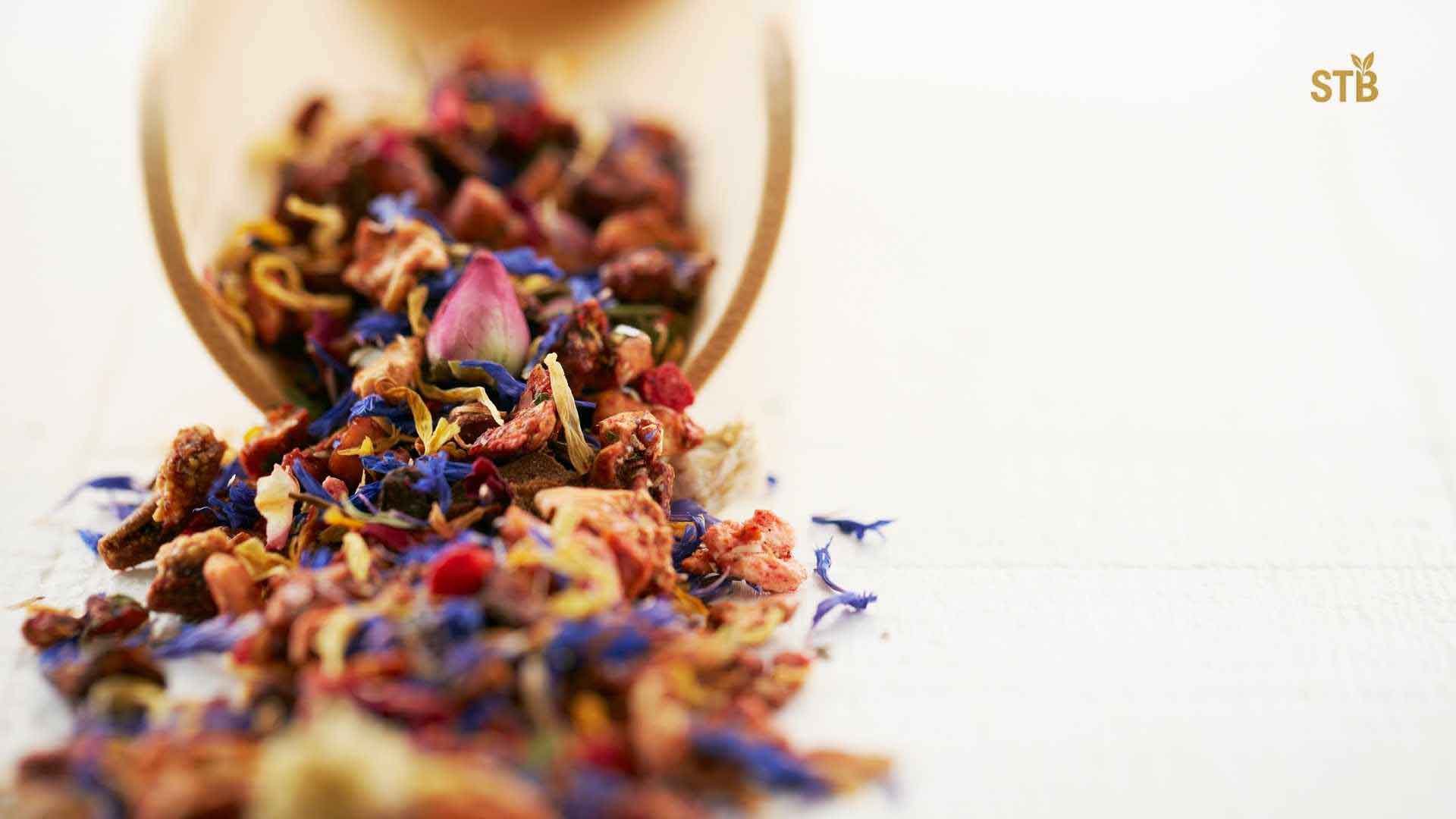
What Are Herbal and Wellness Teas?
Herbal teas (tisanes) are infusions of dried plants like chamomile, peppermint, hibiscus, ginger, and more. They contain no tea leaves or caffeine (except for rare exceptions like yerba maté). Because each herb has its own bioactive compounds, different blends target different wellness goals – for example, chamomile for relaxation, peppermint for digestion, and hibiscus for heart health.
A single cup of herbal tea might contain antioxidants, vitamins, or anti-inflammatory agents. Many wellness blends combine two or more herbs (such as ginger and turmeric in ginger and turmeric tea or lemon-ginger tea) to amplify their benefits. Below are some of the most popular herbs and their traditional health uses. You’ll notice we cite authoritative sources – including STB Leaf’s blog and medical research – to back up each claim.
- Chamomile – A gentle, floral tea prized for relaxation and sleep. Chamomile contains plant flavonoids with mild anti-anxiety and anti-inflammatory effects. Studies suggest chamomile tea can reduce anxiety and improve sleep quality, and may even lower the risk of heart disease. (Note: Chamomile can trigger pollen allergies in sensitive individuals.)
- Peppermint – A crisp, minty herbal tea that soothes the digestive tract. Menthol in peppermint relaxes stomach muscles, easing indigestion and bloating. Both STB Leaf and U.S. researchers note peppermint tea “supports digestion” and can freshen breath. Peppermint is caffeine-free, making it great for any time of day.
- Ginger – A spicy root infusion famed for nausea relief and anti-inflammatory power. Rich in the antioxidant gingerol, ginger tea is a “trusted nausea remedy”. It can speed up digestion, settle upset stomachs and even reduce inflammation throughout the body. (Be aware: ginger can slow blood clotting and may interact with blood-thinning medications.)
- Hibiscus – A tart, ruby-red tea made from hibiscus petals. Hibiscus is very high in antioxidants (anthocyanins). Research indicates that hibiscus tea may help lower blood pressure and cholesterol levels. For example, the USDA notes that drinking hibiscus tea has been shown to lower blood pressure in mildly hypertensive adults. Many people enjoy it iced for a refreshing, heart-healthy drink.
- Turmeric – A golden spice tea (often blended with ginger or black pepper). Turmeric’s active compound curcumin has powerful anti-inflammatory and antioxidant effects. (Harvard Health reported curcumin’s anti-inflammatory and antioxidant properties.) Turmeric tea may help ease joint pain, support digestion and protect the liver – especially when consumed with black pepper or fats for better absorption.
- Rooibos (Red Bush) – A South African herbal tea that’s naturally caffeine-free with a sweet, nutty flavor. Rooibos is rich in antioxidants, specifically polyphenols. It can support heart health by reducing inflammation. Healthline notes rooibos may have anti-allergy effects and could improve bone health.
- Tulsi (Holy Basil) – An Ayurvedic herb known as holy basil. Tulsi tea is considered an adaptogen, which helps the body manage stress. Research suggests that tulsi may help lower blood sugar, cholesterol, and blood pressure, as well as reduce inflammation. It’s also linked to increased energy and improved mood. In traditional practice, tulsi tea is enjoyed daily for overall wellness (“Liquid Yoga” in Ayurvedic tradition).
- Ashwagandha – Another adaptogen from Ayurvedic medicine. While usually taken as a supplement or added to teas, ashwagandha can help the body cope with stress and anxiety. Studies show it may reduce cortisol (the stress hormone) and improve sleep and mood. (Research is ongoing, but it’s often called an “adaptogen” for managing stress.)
- Lemon Balm, Lavender, and Passionflower – Calming herbs often used in bedtime blends. For example, lemon balm has mild sedative and antioxidant effects; lavender tea can help relax nerves (though more research is needed); and passionflower has been used to treat anxiety and promote sleep.
Wellness Blends: Many herbal teas are sold as blends designed to target specific health goals. Immune-boosting blends may include echinacea, elderberry, and ginger. Detox or digestive blends often incorporate ingredients such as dandelion root (for liver support), peppermint, and turmeric.
For example, detox formulas often contain green tea, ginger, peppermint, and dandelion – herbs known to aid digestion and provide antioxidants. (Remember: “liver detox” teas are popular, but medical experts caution that there’s little evidence these cleansing claims are real.)
Key Takeaways: Herbal teas are caffeine-free beverages made from plant ingredients, each with unique nutrients and bioactive compounds. They tend to be rich in antioxidants, anti-inflammatories, and vitamins. Studies and experts consistently note benefits such as relaxation (chamomile), digestion (peppermint, ginger), heart health (hibiscus, rooibos), and stress relief (tulsi, ashwagandha).
As STB Leaf’s guide explains, many herbal teas can “aid digestion and relaxation” and are used as natural remedies across cultures.
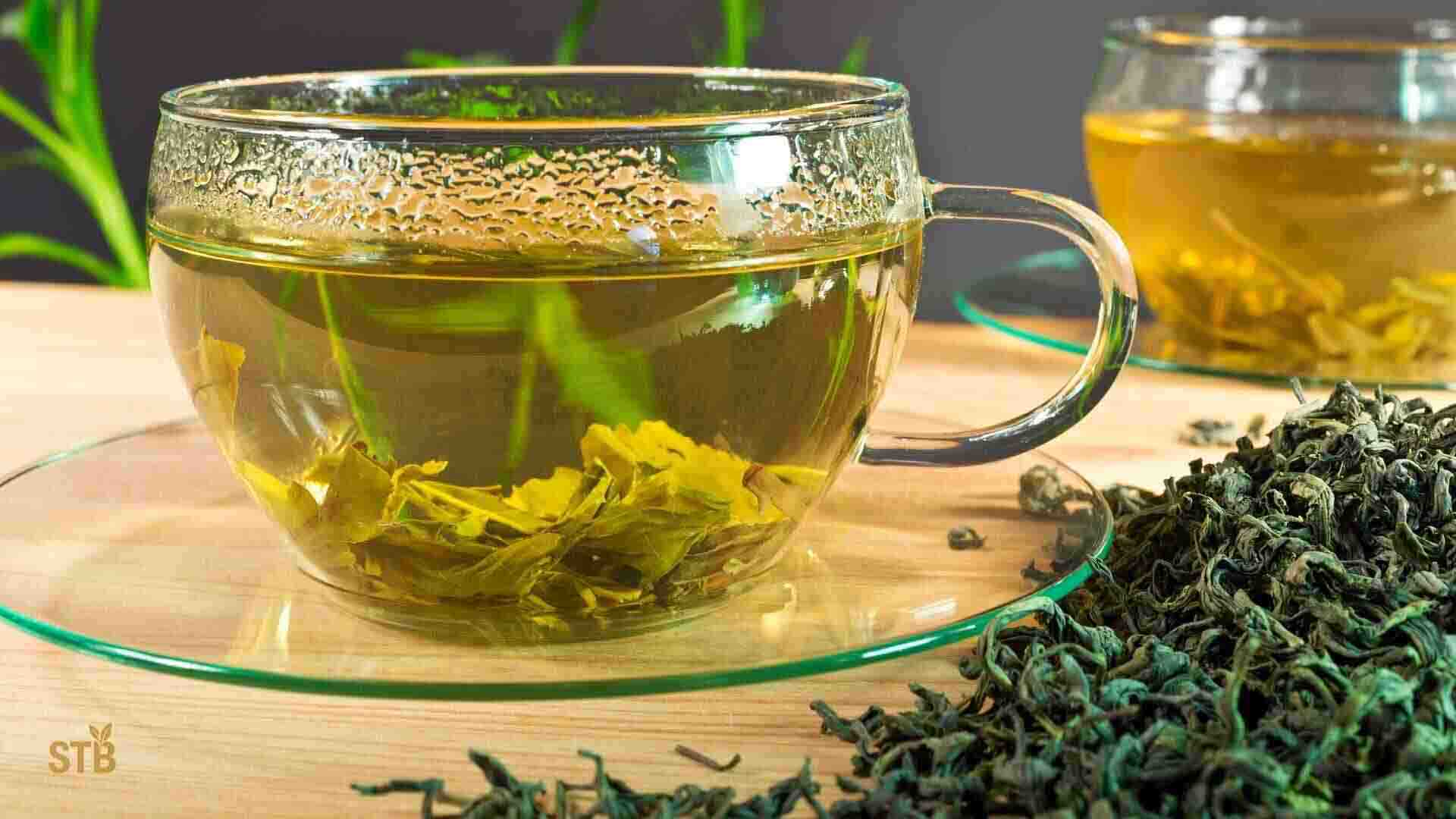
How to Brew Herbal Tea for Maximum Benefit
Proper brewing ensures you extract the healthful compounds from herbs. Follow these tips:
- Use fresh herbs and water: High-quality loose herbs infuse better than old, stale tea bags. Use filtered water and bring it to the right temperature – unlike delicate green tea, herbal teas are hearty and benefit from nearly boiling water (around 95–100 °C). The USDA advises steeping herbal infusions at ~200°F for 5–7 minutes to fully release flavor and nutrients.
- Measure and cover: Typically, use 1 teaspoon of dried herb per 8 oz (240 ml) of water. Cover the cup or teapot while steeping to trap volatile oils (and heat). If you want stronger tea, add more herbs rather than over-steeping, which can make flavors bitter.
- Try blends and enhancements: Mix herbs purposefully – for example, ginger and turmeric for anti-inflammatory effects, or chamomile and lavender for added calm. You can also add spices (such as cinnamon and cardamom), citrus (like lemon and orange peel), or sweeteners (like honey and stevia) to tailor the flavor. Black pepper with turmeric improves curcumin absorption.
- Avoid common mistakes: Don’t use re-boiled water (it loses oxygen). Don’t brew herbal tea for too long (5–7 minutes is usually enough); extended steeping can make certain herbs unpleasantly strong. And drink herbal tea that is warm, but not scalding hot (very hot liquids can irritate the throat).
Clever brewers use high-quality equipment; a glass teapot or infuser is ideal, as it allows you to see the brew’s color. Loose-leaf infusers and strainers allow leaves to expand fully, yielding more flavor. For convenience, you can also find many loose-leaf herbal blends in tea bags from STB Leaf and other retailers. Just be sure that any added ingredients (such as dried fruit or spices) are natural.
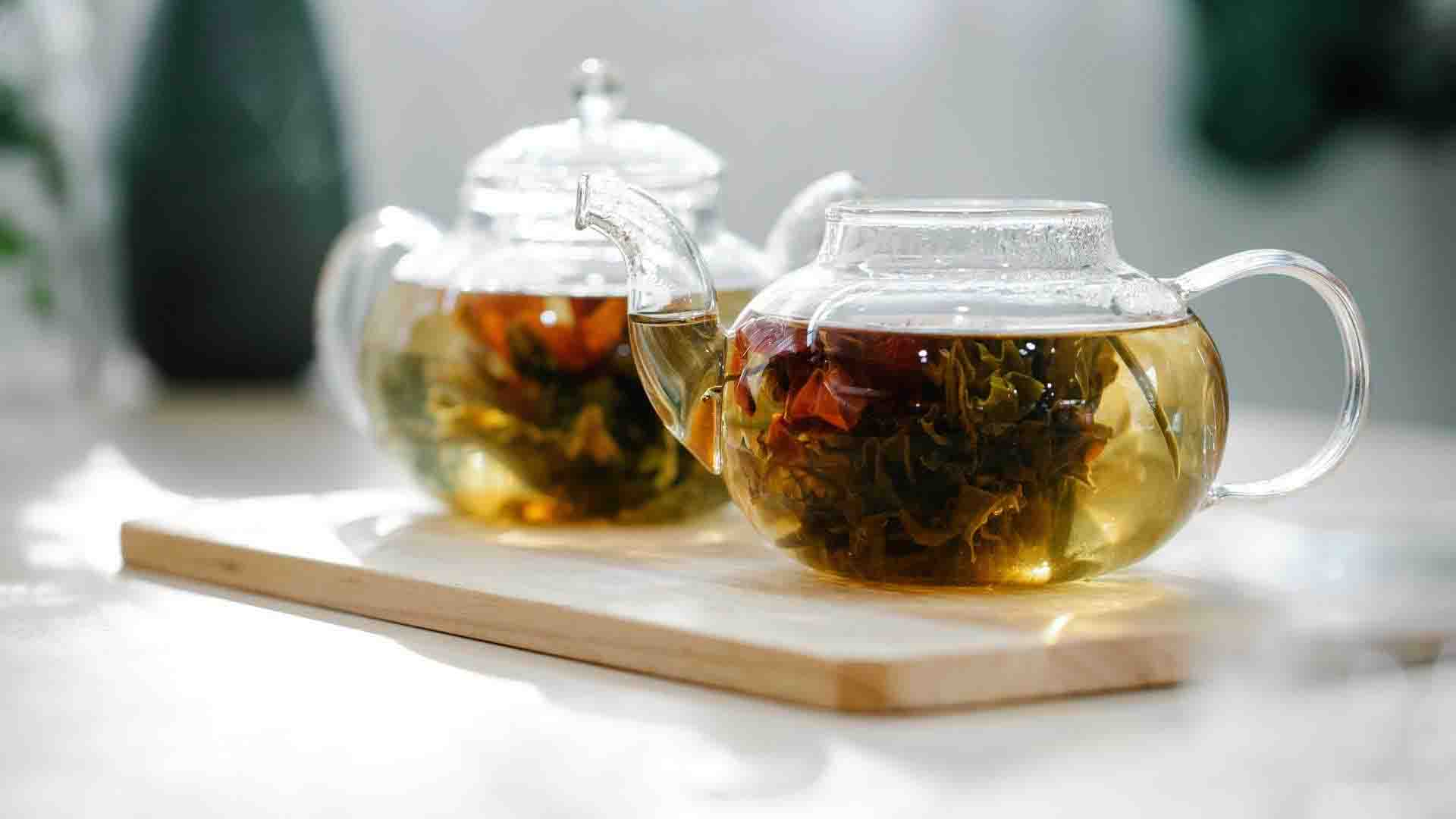
Health Benefits of Herbal Tea
Drinking herbal tea can support various aspects of health. In general, herbal tea benefits include:
- Antioxidant support: Many herbs are rich in polyphenols or vitamins. For example, hibiscus and rooibos are rich in antioxidants that help combat cell damage. Polyphenols help reduce inflammation and may protect against chronic diseases. Even green tea (while not herbal) shares this benefit (its catechins are powerful antioxidants).
- Relaxation and sleep: Herbs like chamomile, lavender, lemon balm, and passionflower have mild sedative effects. Chamomile tea, in particular, is famous for “promoting better sleep”. These herbs contain compounds (flavonoids, terpenes) that can relax nerves and reduce anxiety. Many people enjoy herbal bedtime blends (e.g., chamomile + valerian) to unwind without caffeine.
- Digestive aid: After meals, sipping an herbal tea can soothe the stomach. Ginger tea relaxes stomach muscles and neutralizes acids, easing nausea. Peppermint tea eases gas and indigestion. STB Leaf notes that “peppermint and fennel soothe the gut” and “ginger or peppermint after meals eases indigestion”. Even plain warm herbal water (like mint or lemongrass) can reduce bloating.
- Immunity and cold relief: Some herbal teas support the immune system. Elderberry, echinacea and tulsi are often used to combat colds. Rosehip tea is rich in vitamin C and contains anti-inflammatory compounds. Hibiscus has antiviral properties. These herbs won’t cure illnesses, but they can help your body defend against infection.
- Heart and blood sugar: Regularly consuming herbs like hibiscus or rooibos can benefit heart health. Hibiscus tea has been shown to lower blood pressure and LDL cholesterol. Tulsi and green tea compounds may improve insulin sensitivity and blood sugar control. Over time, these effects may support cardiovascular wellness.
- Stress and mood: Adaptogenic herbs like tulsi and ashwagandha help the body manage stress. Studies indicate ashwagandha “may help reduce stress and anxiety symptoms”, while tulsi may improve mood and energy. Drinking a warm cup of herbal tea can be a calming ritual that helps lower stress.
Importantly, herbal teas do not replace healthy habits. They can complement a balanced diet, hydration, and exercise. As one Healthline article notes, many herbal teas are calorie-free and “offer health-promoting effects,” but further research is needed to fully confirm traditional claims. Still, incorporating a cup or two of herbal tea a day is an easy, natural way to add extra nutrients and routine self-care to your life.
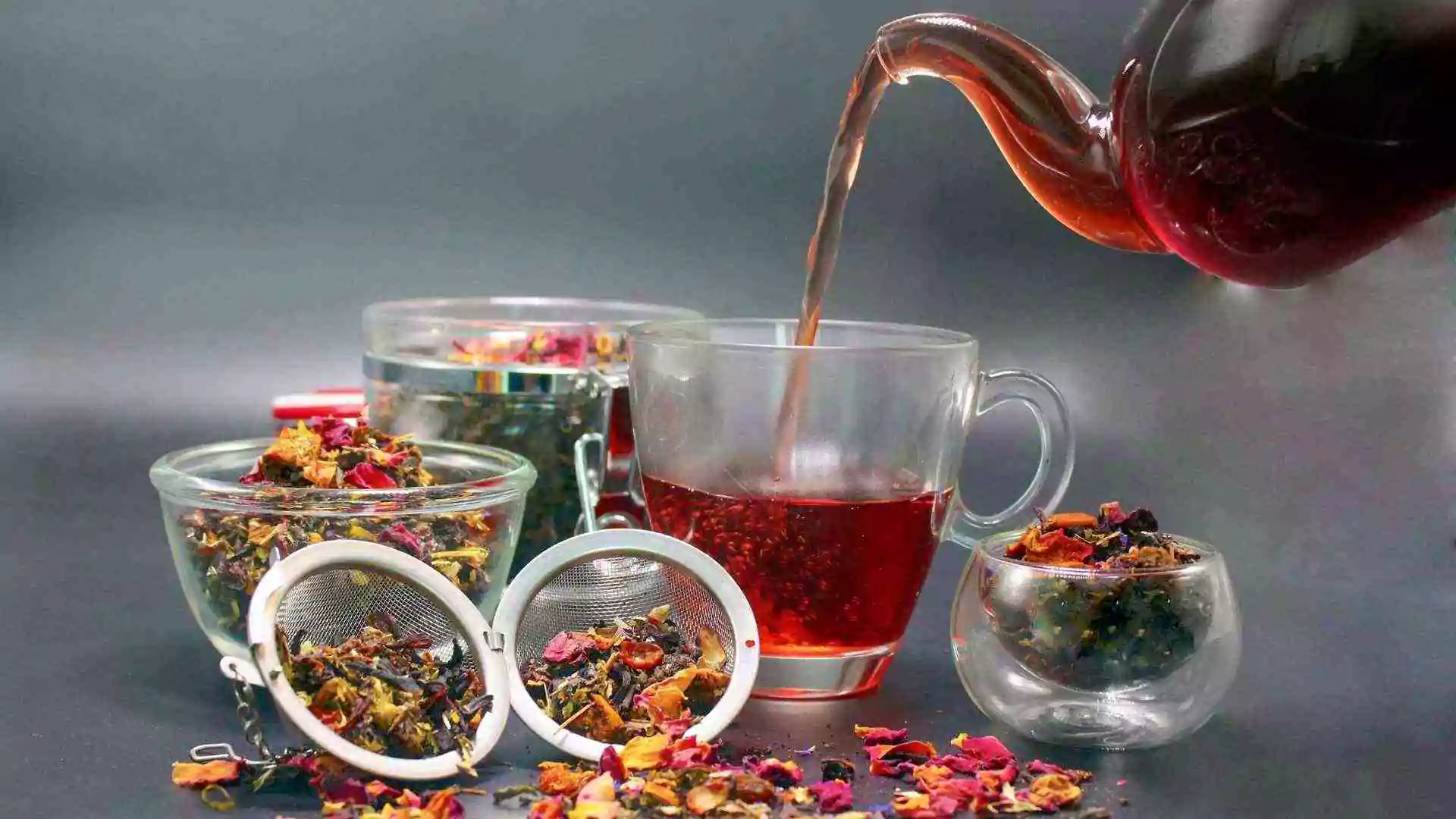
FAQs About Herbal Tea
Q: Are herbal teas healthy to drink every day?
A: Most herbal teas are safe and can be enjoyed daily. Because they are naturally free of sugar and caffeine, they make healthy beverages. Many offer antioxidants and gentle plant compounds with few side effects. For example, chamomile, peppermint and rooibos can generally be consumed daily without issue. However, some individuals may need to avoid certain herbs.
Q: Can herbal tea interact with medications or allergies?
A: Yes – herbal teas are powerful plant medicines, so use caution. For instance, ginger tea can slow blood clotting and should be used carefully if you take blood thinners. Chamomile may trigger allergies in people sensitive to ragweed pollen. Always read labels: avoid herbs known to affect your condition. If you take prescription drugs or are pregnant, consult a doctor before drinking a medicinal herb.
Q: Are herbal teas caffeine-free?
A: Almost all herbal teas have no caffeine. (Rooibos, most fruit/flower infusions, mint, chamomile, etc., are naturally caffeine-free.) The one exception is yerba maté or guayusa blends, which contain caffeine by nature. However, standard wellness teas don’t contain the jittery caffeine found in coffee or black tea. This makes them great for evening relaxation or for people sensitive to caffeine.
Q: Which herbal teas aid digestion?
A: Peppermint and ginger are classics for digestion. Peppermint tea relaxes the gut and can relieve indigestion and gas. Ginger tea helps alleviate nausea and promotes the passage of food through the stomach. After meals, even a simple blend of chamomile or fennel can help calm the stomach. A warm cup of herbal tea can promote digestive comfort without side effects.
Q: What herbal tea helps me sleep or relax?
A: Chamomile and lavender teas are best known for their relaxing properties. Chamomile contains calming flavonoids that reduce anxiety. Lemon balm and valerian root (often blended together) can also promote sleep. Try drinking a cup of chamomile or tulsi tea about 30 minutes before bedtime. (Avoid green or black tea late at night, since their caffeine can keep you awake.)
Q: Can herbal tea help with weight loss?
A: No herb is a magic weight-loss cure, but herbal teas can support your goals. For example, green tea (a true tea) contains EGCG, which slightly boosts metabolism, and replacing sugary drinks with herbal teas can help cut calories. Some studies suggest tea polyphenols may inhibit fat absorption. In short, herbal teas can be part of a healthy diet – drink them instead of sodas, and their mild effects can aid weight control.
Q: Which herbal tea is good for the immune system?
A: Rosehip, echinacea, and elderberry are popular for their use in combating colds due to their high vitamin C content and immune-boosting compounds. Tulsi (holy basil) has broad “immunity and infection” benefits as an adaptogen. Ginger and cinnamon have antimicrobial properties. Hibiscus also offers antiviral and antioxidant effects. While no tea will “cure” a cold, sipping immune-boosting herbs at the first sign of illness can help your body fight off bugs.
Q: Is it true that herbal teas “detox” the liver?
A: Be skeptical of detox claims. As Johns Hopkins Medicine explains, there’s no solid clinical evidence that “liver cleanses” or detox teas actually clean out your liver. It’s better to focus on well-being: stay hydrated, limit alcohol, and eat healthily. Herbal teas can then support this by reducing inflammation and providing antioxidants. In other words, herbal teas complement a healthy lifestyle, but they aren’t magic cleansers.
Q: How much herbal tea should I drink daily?
A: Research generally recommends moderate intake: about 2–3 cups per day. This amount provides a sufficient amount of antioxidants and plant compounds without overloading your system. (An STB Leaf FAQ notes “3–5 cups is often recommended” for tea’s benefits.) Drinking more than 5 cups of any tea could lead to mild side effects (like too much caffeine or upset stomach). Listen to your body – and enjoy a variety of herbal flavors throughout the day.
Q: Any risks or side effects?
A: Most people can enjoy herbal teas safely. The main concerns are:
(a) Allergies/interactions (see Q2 above),
(b) excess intake (some herbs in very high doses can cause nausea or other effects), and
(c) very hot temperature (don’t sip scalding hot tea).
For example, very high doses of cinnamon could affect blood sugar, and extremely hot drinks have been linked to throat irritation. In general, herbal teas are well-tolerated. If you have a health condition, check with a doctor.
Next Steps
Herbal teas and wellness blends are a delicious way to naturally boost your health. With rich flavors and gentle benefits, teas like chamomile, peppermint, hibiscus, ginger, tulsi, and more can become part of your daily self-care routine. We’ve covered their benefits, how to brew them, and what to expect. Now it’s time to sip and enjoy: try making a cup of your favorite herbal blend, or experiment with a new combination for digestion, relaxation, or immunity.
Ready to explore more? Visit STB Leaf’s online shop to browse our premium Bangladeshi herbal and wellness teas. Whether you prefer organic chamomile, ginger–turmeric blends, or classic green tea, we offer high-quality teas to support your wellness journey. Enjoy the flavorful ritual of tea and experience its natural health perks.
Discover herbal tea wellness today – brew a cup and feel the benefits for yourself!

